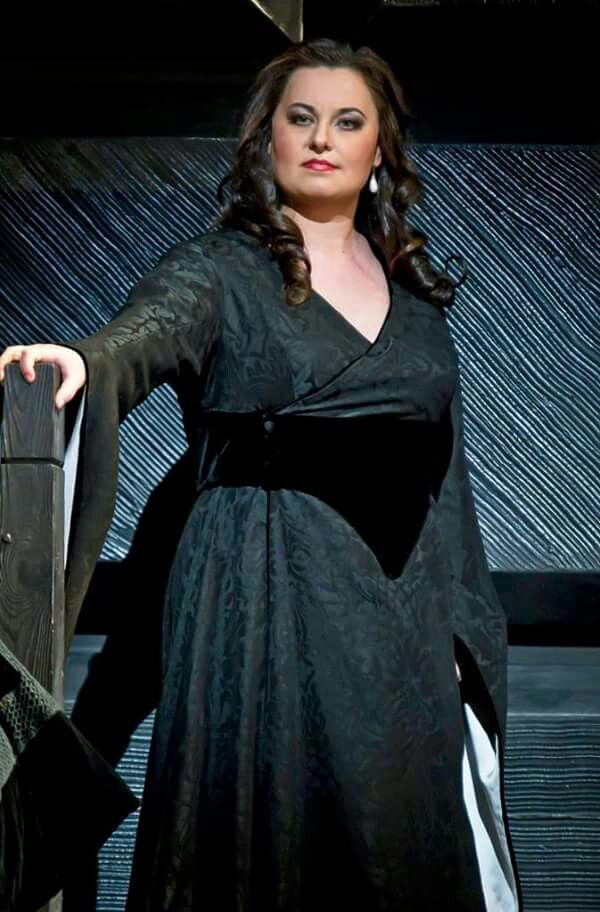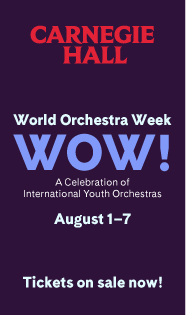“Tosca” returns to the Met with dramatic fire, big, old-fashioned vocalism
Tosca returned to the Metropolitan Opera on Wednesday evening with a veteran cast—Liudmyla Monastyrska as Tosca, Matthew Polenzani as Cavaradossi, and Željko Lučić as Scarpia—that delivered musically as well as dramatically. In some ways, the performance hearkened back to an earlier time when voice and temperament were the chief prerequisites to being an opera star.
According to the program, the Met’s 1917 production of Tosca was used for 50 years. David McVicar’s could easily serve for that long. It’s traditional to a tee, except for the entire stage being pitched on about a 15-degree angle. The three locations in Rome at which the action unfolds are replicated in all of their grandeur. Scarpia’s ornate chambers in the Farnese Palace, complete with logs burning in the fireplace, drew gasps from many in the audience.
Vocal grandeur is a prerequisite for a Tosca, and Monastyrska’s sumptuous voice fills out Puccini’s soaring lines effortlessly. At full volume there is more vibrato in her top range than is standard with less vocally endowed sopranos, but her voice never loses its beauty or suppleness. Monastyrska can scale it down to caress the lightest and most alluring of Puccini’s soft, lyrical melodies. Her Tosca is at times kittenish, especially when teasing or flirting with Cavaradossi. Ardor and prayerfulness went hand in glove in Tosca’s great aria, “Vissi d’arte”.
Lučić is an aptly vile Scarpia—blasphemous, lecherous and brutal. Some of the punch may be gone from his voice, but none of the venom in his portrayal of Puccini’s demonic blackguard. Lust powers Lučić’s Scarpia without the thinnest veneer of gallantry. On this evening, more vocal presence was required to match the visceral thrills provided by the orchestra and chorus in the “Te Deum.” Lučić, however, thundered menacingly when he gave voice to Scarpia’s anticipation of his conquest of Tosca and the death of her lover in the next act.
Polenzani’s tenor does not have the sheer vocal heft that Monastyrska and Lučić possess, but his instrument has gained in both color and weight with the passage of time. His rapturous, lyrical account of “Recondita armonia” was as effortless as it was beautiful. There was an actual sob in Polenzani’s voice in the opening measures of Act III, and his emotion-fueled “E lucevan le stelle” was the most stellar singing of the evening, which the audience readily acknowledged.
The icing on the cake was the three singers’ interaction with one another. Sparks flew as Monastyrska’s Tosca dueled vocally and physically with Lučić’s Scarpia. He pounced on her as a leopard upon his prey, while she gave him the stabbing that he served.
Polenzani tossed off the dreamy guise of an artist and a lover in his confrontations with Lučić’s Scarpia and became a hero upon hearing the news that Napoleon was victorious in battle. Tosca and Cavaradossi’s final rapturous expression of love and triumph in “Amaro sol per te m’era il morire” was bold and terrific.
Vivid acting and singing was not confined to the three principals. Patrick Carfizzi reprised his winning, fussbudgety Sacristan. Met stalwart Kevin Short was a vigorous and resonant Angelotti. Brendan Ryan’s every appearance as Spoletta sent a shiver down one’s spine. And Mila DiPolo’s shepherd’s song delivered pure, angelic singing.
Conductor Domingo Hindoyan led a performance that embraced both the drama in Puccini’s score and the exceptional talents that he had at his command. The Met orchestra and chorus responded to his touch and performed flawlessly. The horn playing at the beginning of Act II and the clarinet solo that “E lucevan le stelle” were exceptionally poignant and beautiful.
Hindoyan’s best decision was to support the performance’s three stars by employing generous use of rubato, rapid dynamic changes, and the willingness to stretch a phrase so that every last drop of emotion could be squeezed from a phrase. In other words, he made it a Tosca to savor.
Tosca continues through April 15 with Angela Gheorghiu singing the title role on April 8 and 12. metopera.org


Posted Apr 01, 2023 at 9:08 am by Barbara Deichmann
Thank you so every much for your excellent critique. I must
wait until April 8th, so I can listen TOSCA on broadcast from
Hamburg of NDR Kultur at 19 hrs (7pm). Happy to get that
wonderful chance!
Posted Apr 09, 2023 at 12:02 pm by Vera Serpentine
Heard the Saturday performance “live from the Met” on BBC Radio 3. It came across exactly as the review describes. Riveting and beautiful!